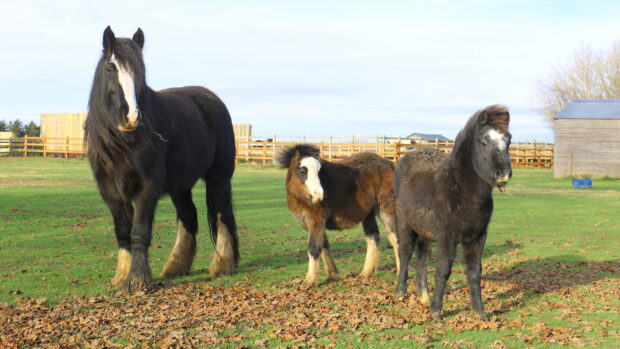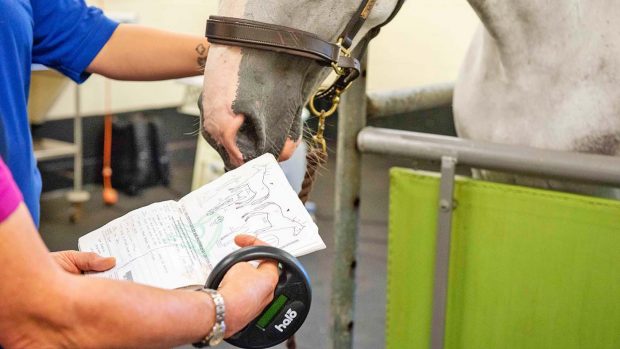THE first finding of fragile foal syndrome (FFS) in a non-warmblood, a thoroughbred, is “significant” and may mean more screening is carried out in future.
A study by the Royal Veterinary College (RVC) with the University of California Davis Veterinary Genetics Laboratory (VGL) and Rossdales Laboratories, Newmarket, recommended the disorder be renamed from warmblood fragile foal syndrome.
Foals with the connective tissue disorder, caused by a DNA change in the PLOD1 gene, are usually born with extensive lesions caused by very thin, fragile skin, and musculoskeletal abnormalities. These mean they are typically aborted or stillborn or have to be put down.
FFS had been associated with warmbloods, but having identified the change in the PLOD1 gene in other breeds, Rebecca Bellone and her team at VGL approached the RVC equine pregnancy laboratory to screen for the condition in its bank of cases of pregnancy loss.
A thoroughbred foal put down owing to skin lesions was tested and it was found that the PLOD1 variant was the likely cause of its condition. This is the first documented evidence of FFS caused by the PLOD1 variant in a breed other than a warmblood.
The study, published in the Equine Veterinary Journal, highlights the importance of genetic testing to inform breeding decisions and avoid producing affected foals. FFS is recessive, so foals will only be affected if they have two copies of the gene mutation, one each from the dam and sire.
British Equine Veterinary Association (BEVA) president Huw Griffiths said the study was a “great example of collaborative work” that will lead to better understanding of the condition.
“Hopefully, this case will prove to be relatively isolated and the numbers of thoroughbred foals lost to this condition will be few in number,” he said. “Thankfully, we have significant data with respect to foetal losses in thoroughbreds and it will be interesting to identify to what extent FFS may be involved in these losses.
“The one positive with this disease is that it is possible to screen for genetic susceptibility and, therefore, prevent future losses via the avoidance of breeding a mare and a stallion who both have the gene mutation.”
James Crabtree, a member of BEVA’s health and medicines committee, said the study is likely to have an impact on selection of thoroughbred breeding stock.
“The difference in selection pressures between breeds may have contributed to the higher prevalence in warmbloods,” he said. “But the presence of the mutant genes in other breeds suggests the mutation could have occurred spontaneously more than once or may date back even further.
“The true prevalence of the mutant gene will likely become known with more widespread field screening of thoroughbreds.”
The Thoroughbred Breeders’ Association vet committee chair James Crowhurst told H&H this first recorded case is significant.
“We are aware of studies in a small number of thoroughbred mares and horses in training, showing that there is a low level of carrier status. In the future, more screening may be needed, to avoid the problems that already exist in some warmblood populations,” he said.
You might also be interested in:

First case of fatal foal disorder found in non-warmblood horse

Sport horse stallions – does breeding or sport come first? *H&H Plus*
Selene Scarsi investigates the factors that make up a stallion’s career, and asks whether it is breeding or competing that

Subscribe to Horse & Hound magazine today – and enjoy unlimited website access all year round
Horse & Hound magazine, out every Thursday, is packed with all the latest news and reports, as well as interviews, specials, nostalgia, vet and training advice. Find how you can enjoy the magazine delivered to your door every week, plus options to upgrade your subscription to access our online service that brings you breaking news and reports as well as other benefits.




